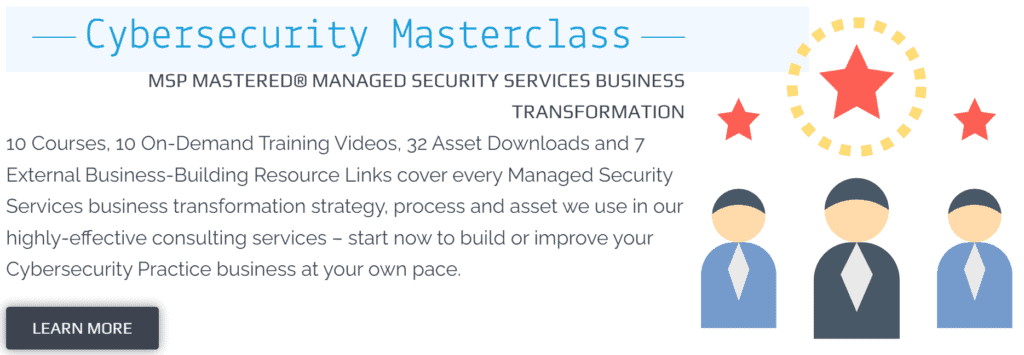
3 Questions to Improve Staff Satisfaction and Morale, and Reduce Churn
I just kicked off a new team-building engagement with an MSP client and wanted to share some takeaways while they are still fresh in my mind that may help you improve your staff’s morale, confidence, and retention, and build a highly satisfied, high-performing team. As part of my team-building sessions, along with conducting DISC Behavioral Assessments and delivering analyses to help leaders, functional units, and individuals understand their teammates’ different communication styles to improve collaborative outcomes, I conduct individual one-on-one interviews.
These interviews allow me to get to know each team member and provide an opportunity for candid, direct, and objective discussion and feedback. In some cases, and especially for newer employees, this may be the first opportunity they have had since being hired to share feedback about their personal vision and career goals, and opinions about their role with the company and overall company operations.
During these conversations, I elicit feedback from team members about company processes, strategies, and their personal day-to-day challenges, along with their suggestions for improvement in these and other areas. I conduct these conversations in a casual manner to allow them to relax and feel comfortable sharing their opinions. I let them know that my goal is to help them and their leaders recognize their challenges and opportunities, leverage their strengths, and overcome their weaknesses to achieve their goals, much akin to a micro version of a SWOT exercise.
During these sometimes wide-ranging chats, I always make sure to ask team members three specific questions, and I recommend you do the same. Here are the first two:
Question 1: What is the number one thing the company should stop doing, and why?
Question 2: What is something the company isn’t doing today that it absolutely should be doing, and why?
When I share the responses to these questions with company leadership, I tend to find some pretty consistent reactions, including:
Leadership Response A: “We are aware of these things, and they’re being worked on.”
Or
Leadership Response B: “These suggestions are on a list of items to be worked on at some point.”
And sometimes, I get a response similar to this:
Leadership Response C: “We were unaware of these points that a team member or multiple team members strongly agree the company should stop or start doing.”
In my experience, if leadership’s response is “A,” indicating awareness of challenges and opportunities and having a plan in place to address them, that’s a good sign. However, if team members are compelled to bring these topics up with me, it indicates that either they are unaware of leadership’s plans to address these concerns, or that promised changes by leaders are taking too long to implement.
If leadership’s response is “B”, reflecting an understanding of the importance of addressing these issues, that’s also a promising sign. But in this instance, perhaps they aren’t prioritizing the need to take action highly enough on their strategic to-do list or as quarterly rocks (for EOS practitioners).
And if leadership’s response is “C”, and otherwise, in general, they should recognize the importance of creating opportunities for consistent and honest two-way communication with their staff for valued feedback, and the need for rapidly executing promised change as a result of that feedback. This will go a long way toward strengthening overall employee confidence and morale and improving staff retention.
Here’s the third question I always ask team members during these conversations, and I also encourage you to ask:
Question 3: If you could write your ideal job description or design your perfect role in the company, what would that look like?
I've done hundreds of leadership and team-building exercises and interviewed thousands of team members during them. Many of the responses I've gotten to this particular question have surprised not only me but also their respective company leaders.
Erick Simpson Tweet
I’ve done hundreds of leadership and team-building exercises and interviewed thousands of team members during them. Many of the responses I’ve gotten to this particular question have surprised not only me but also their respective company leaders. Asking this question allows a team member to express whether their current role, career path, or succession plan within the company matches their ambition. But not only that, it also reveals how comfortable they are in their current role or path. Of the three questions I always ask team members, the response to this one is generally the least predictable overall, highlighting how important it is to ask, and ask often.
While I do tend to find team members are typically in the “right seat on the bus”, I also find that some would like a shot at a different role in the organization for reasons that have more to do with job satisfaction than ambition. Sometimes an individual performs their job adequately and competently and loves it, and all is right with the world. But what happens when they appear to perform that role adequately and competently, but struggle internally to do so, and as a result, don’t love it, or aren’t passionate about it?
Staff that are “just doing the work” without “wanting it” or “loving it” are your highest-risk employees. It should be no surprise that a role requiring a team member to operate too far outside of their comfort zone, or “natural behavioral style” for too long results in heightened mental fatigue, inconsistent performance, and diminished morale compared to a position that more closely aligns with their natural behavior or “wiring”.
During my leadership and team-building sessions, when I detect that a team member has ambitions to take on more responsibility or compete for a leadership position within the organization; or signals that they are unhappy or struggle in their current position, I recommend company leaders take rapid and decisive action to address both of these situations, as these team members are each at varying levels of risk.
Failing to detect and address the ambitions of an employee that wants to rise within the ranks of the organization, or one that is privately unhappy in their current role may ultimately drive them to purposely look elsewhere to advance their careers, or make them especially susceptible to entertaining unsolicited offers from headhunters and your competitors.
Here are a few tips to help build, grow and retain satisfied, high-performing teams:
- Create and share with all staff an Org or Accountability Chart with every current role within your company, PLUS those that it will need to fill over time to support business growth
- Document each role’s title, requirements, and compensation and share with all staff
- Interview each team member regularly for feedback and include my three questions, document their feedback and take appropriate action:
Question 1. What is the number one thing the company should stop doing, and why?
Question 2. What is something the company isn’t doing today that it absolutely should be doing, and why?
Question 3. If you could write your ideal job description or design your perfect role in the company, what would that look like? - Mentor, coach, and develop each team member according to their desired career path within the organization and adjust the roles of team members to better align with their natural behavioral styles to improve satisfaction and performance
Check Out My Discussion on The Many Benefits of Firing Clients With Jennnifer Tribe on the Workflow for MSPs Podcast
I recently had the pleasure of sharing my thoughts on why and how to regularly fire clients with Jennifer Tribe on the Workflow for MSPs Podcast.
Here are the show notes:
Firing clients from your MSP won’t solve all your business problems, but you might be surprised how much it can fix or improve. MSP expert Erick Simpson shares how to grow your MSP by cutting clients, including how to identify the clients you’re better off without, when and how to successfully offboard them, and how to increasingly finetune your offboarding over time so you’re using it as a growth vector.
Click here for a complete transcript of the episode, including show notes and links to resources.
I'm Speaking at the SMB TechFest Conference and Expo - Be My Guest!
SMB TechFest Q1 is coming up on Feb 9-10,2023. See me present along with other industry experts on sessions to grow your business. Also, engage in the IT Mixer, Expo Hall, and prizes included in this exclusive no-cost VIP pass for you. There are a limited number of complimentary VIP passes for my guests and they’re first come first serve – so click below to get yours FREE as my guest, and I’ll see you there!
Transform Your MSP With My Online MSP Mastered® Masterclasses
Train your entire team with my online MSP Mastered® Masterclasses. In them, I’ve taken my most effective business transformation strategies, tactics, techniques, forms, tools, agreements, SOWs, SLAs, calculators, templates, processes, white papers, and more, added on-demand video training, and created an incredibly effective program for stratospheric MSP business transformation and growth.
“Erick, signing up to your Masterclass is without a doubt one of the best investments I’ve made and has proven to be an incredible asset to Compunet. Even though we’ve been in business for over 2 decades, your training brought a tremendous amount of new and valuable information to me and my team. I cannot recommend this course enough to any MSP regardless of how long they have been in operation.” – Nick Nouri, President & CEO, CompuNET
Business Coaching & Advisory Engagements
My cost-effective MSP Mastered® Business Coaching and Advisory programs are designed for growth-minded IT Business Owners looking for help and accountability to get to the next level of performance and profit. Click below to set up a call with me to find out if my coaching program is right for you.














